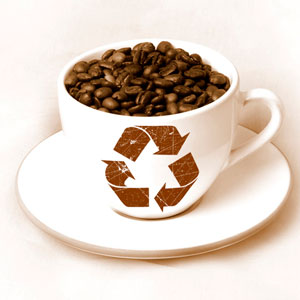 Thanks to scientists at the City University of Hong Kong working together with Starbucks to create a food biorefinery, nearly 5,000 tons of used coffee grounds and unconsumed waste bakery items will be put to good use, making plastic and other useful products!
Thanks to scientists at the City University of Hong Kong working together with Starbucks to create a food biorefinery, nearly 5,000 tons of used coffee grounds and unconsumed waste bakery items will be put to good use, making plastic and other useful products!
Currently the coffee giant’s waste is incinerated, composted, or tossed into a landfill. This is just the type of venture that environmentalists are thrilled about; just think of the positive impact this could have on the environment!
In a news release issued by the ACS Carol S. K. Lin, a biochemical engineer at the University who is responsible for developing the technique, said, “Our new process addresses the food waste problem by turning Starbucks trash into treasure — detergent ingredients and bioplastics that can be incorporated into other useful products.” So how does it work?
First, the old baked goods are mixed with particular fungi, which excrete enzymes to break down the carbohydrates in the food. This turns the food back into simple sugars, which is then put into a fermenting container that breaks down the sugar into a substance known as succinic acid. This material, which can be refined with less energy than petroleum, is then used in used to produce a wide variety of materials such as bioplastics, laundry detergents, etc.
Going forward this biofinery process could be used on a greater scale with additional funding from investors, according to Lin. For now the process is going to test at a pilot plant in Germany.